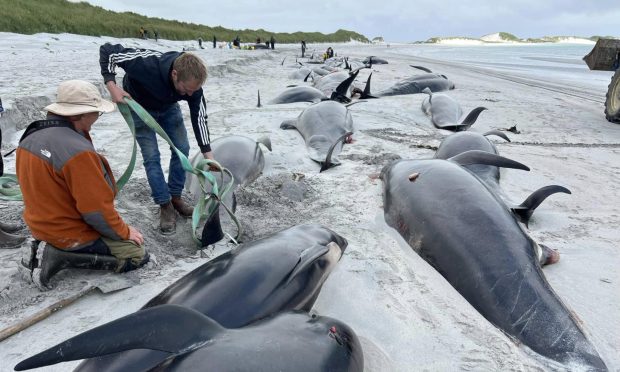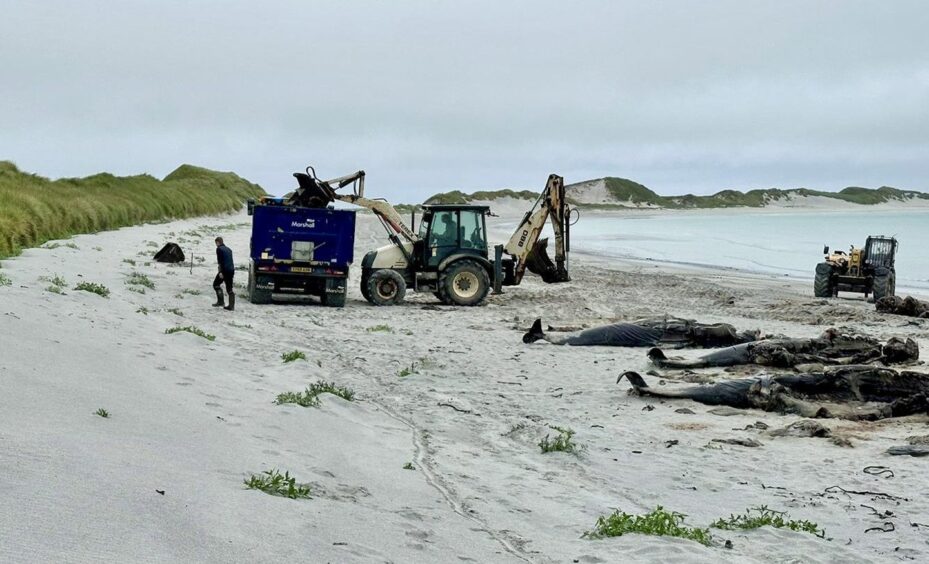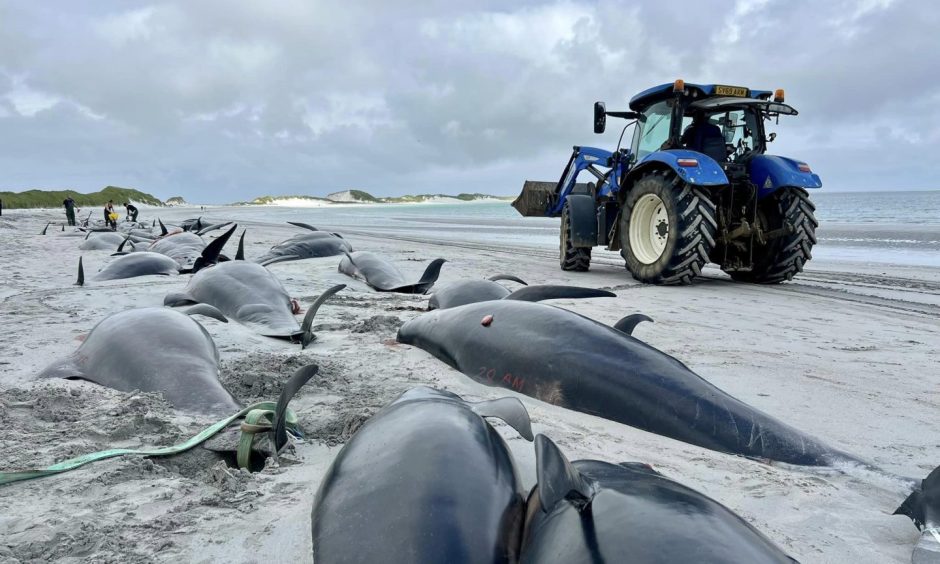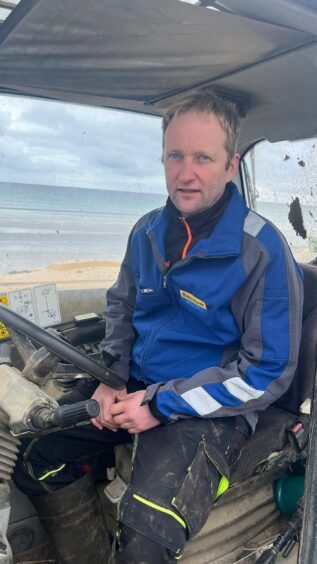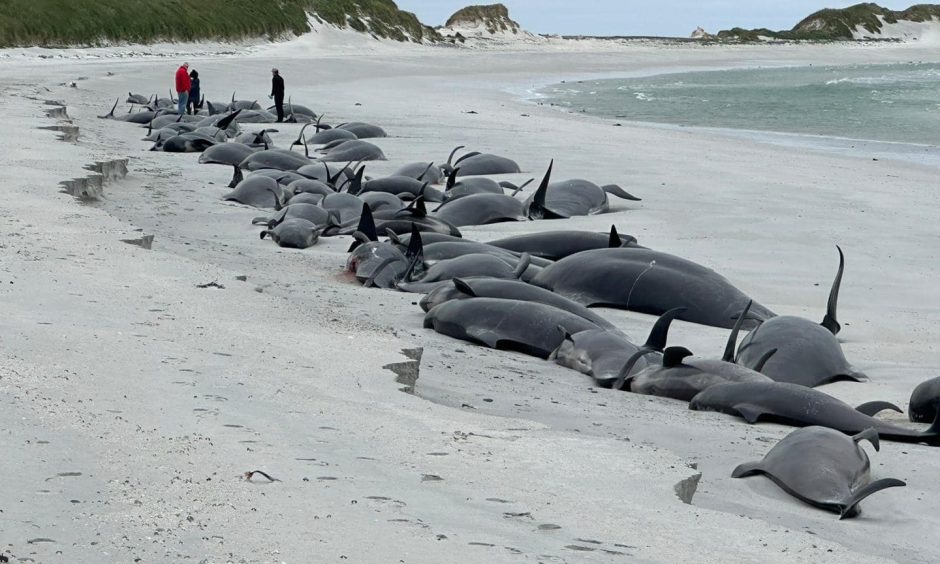More than 70 whales have finally been laid to rest following a mass stranding at an Orkney beach last week.
The pilot whales were found on the island of Sanday at Tresness last Thursday in what is believed to be the largest mass stranding for decades.
While some whales were alive when found, their condition meant they had to be euthanised. In total, 77 mammals have died.
Since the tragedy, the local community along with scientific experts have come together to help prepare the animals for burial.
Beforehand, scientists collected 72 sections of jaw, 5 entire skulls, 77 scapulas, and around 2,000 samples to be studied. Some specimens will be displayed in museums.
The efforts to clear away the carcasses has been overseen by Orkney Islands Council with assistance from the Scottish Marine Animal Stranding Scheme (SMASS) and other organisations.
SMASS has thanked the Orkney and Sanday community for being “so generous with their time and resources”, making sure the team has everything they need.
“Their support has been overwhelming and so essential to the whole operation,” the group said.
Mammoth operation to recover stranded Orkney whales
British Divers Marine Life Rescue (BDMLR) said there are “no obvious indications” as to why they washed ashore.
It appeared that the animals had been feeding recently, and were described as “well-fed”.
Due to the weight of some parts of the whales – a whale skull can weigh up to 150kg – tractors have been used to transport them off the beach, driven by local farmers.
Farmer James Muir from Hermisgarth has been helping co-ordinate efforts since the whales were discovered, also helping move the mammals further up the beach so post-mortems can be carried out.
He told BBC Radio Orkney that “nothing had prepared him” for the size of the animals and sheer scale of the loss they had suffered.
Earth-moving equipment from Orkney Builders has also been brought over to dig the holes for burial.
According to the council, it has been “challenging” trying to identify suitable burial sites for the whales as the Scottish Environmental Protection Agency ruled that no more than 10 whales can be buried in one site.
Eight sites were chosen with multiple animals being laid to rest at each site.
Orkney Council confirmed all animals had been buried, however, one had been left on the beach to decomposes naturally.
The skeleton will by retained by the community to serve as a poignant reminder and memorial to the lost whales.
It will eventually be offered to the Orkney’s Heritage Centre on loan from SMASS.
